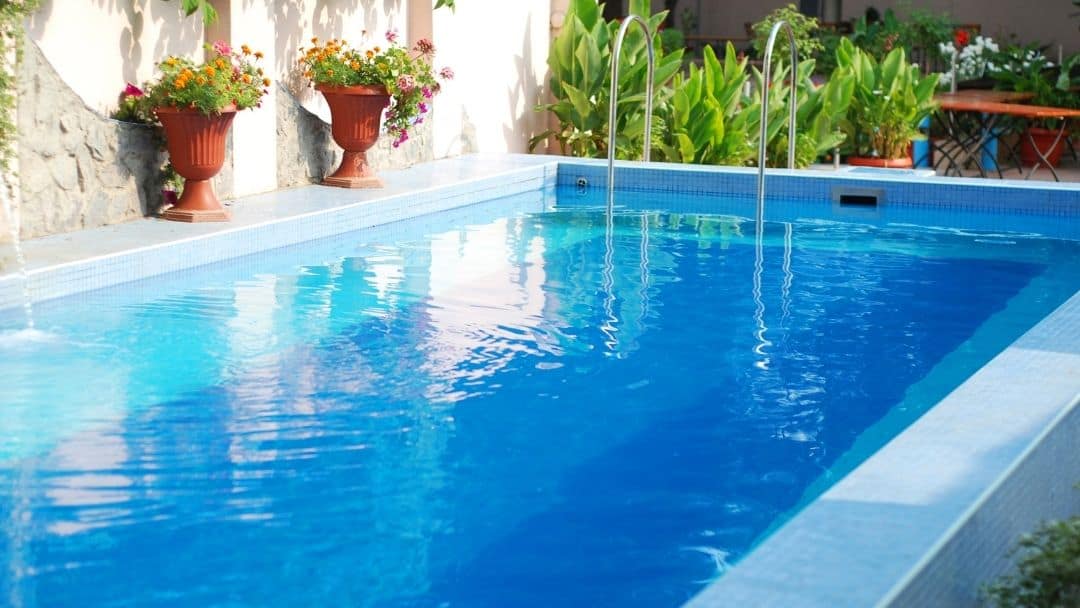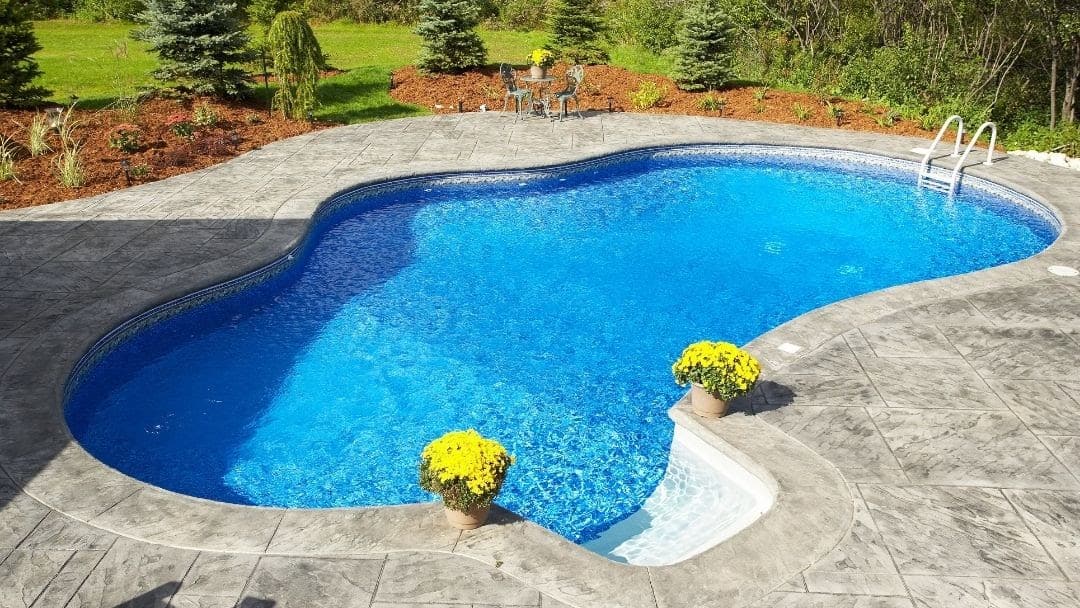How great it is to dive into your very own pool during a hot summer day, right? Knowing you don’t need to pack your bags and drive to a community pool to enjoy a daylong family holiday sounds so nice. Moreover, you need not share a pool with people you hardly know.
Cost of pool installation and maintenance
Not meaning to burst your bubble, though, but when it comes to installing a pool, it’s important that you know the responsibilities and costs involved. From the cost of installation itself to the liability and maintenance costs attached to it.
On average, the cost of installing a 600-square-foot concrete pool starts at $30,000 while average ongoing maintenance costs for a basic pool is $1200 to $1800 annually. And don’t forget the repairs and utility costs too, which can increase your yearly total from $3000 to $5000.
But Wait, How Much Does a Pool Add to a Home Appraisal?
On top of the costs associated with installing a pool, most homeowners are also interested in knowing whether a pool can really add value to your home when you finally decide to put it up on the market. This has become one of the most asked questions before someone decides on having that dream pool in their very own backyard. So, does it?
The short answer is yes, but it depends on the market. A pool can add value to a home in any area with a warm climate and lots of sunshine, including Florida, California, Arizona or New Mexico. However for homeowners living up north no matter what size your pool is you will not receive that same bump in property values because people are only able to spend so much time using it before the weather cools off too much going into the fall.

Not Selling Soon? Keep Maintenance and Ongoing Costs of Owning a Pool in Mind
The ongoing maintenance and upkeep can be a costly endeavor. If you don’t continuously keep your pool clean, it will turn green in no time! You should also make sure to have the protective cover on during winter months to prevent any tree branches from falling into your swimming pool or otherwise damaging it beyond repair. This is because trees love to drop their leaves right about this time of year. Beyond that, once you start adding up all of those monthly costs including chemicals, water treatment systems and supplies then things start getting expensive real fast without even considering the initial cost for building one out first!
According to Homeguide pool maintenance prices in the US fall into these ranges:
- $81 to $143 per month during the swimming season
- An average of $300 to either open or close the pool
These costs don’t even factor in a possible increase in your homeowner insurance rates that may come along when you add one to your home. Do the math based on how soon you plan to sell your home and be sure to factor that into your decision-making so that you will have a good idea if the property value increase will be worthwhile or not for your particular home.
A Feature to Sell or an Obstacle to Closing?
A lot of real estate experts say that a well-kept pool under the right circumstances, especially inground, can boost your home’s resale value by as much as 7% according to Houselogic. This though depends on certain conditions as follows:
- You live in a higher-end neighborhood where pools are a common home addition.
- You live in a state with a warmer climate like Florida, Arizona, or Hawaii where a pool is enjoyed all year-round.
- You have a spacious backyard and your pool isn’t taking up most of the space.
Hiring an appraiser to help assess whether adding a pool will add value to your property would be useful before you decide on installing a pool in your home or not. Ask that your home be appraised as it is and as if it had a pool.
The appraiser will usually look at comparable homes that have a swimming pool and issue a fair market value for your home based on those findings.

How to Finance Your Pool
If you’re not able to pay cash upfront for the pool costs, you may be considering financing the pool as a strategy to get it done before selling in the hopes that you’ll recoup the costs at appraisal. This is a fairly risky strategy though and you should be prepared for the possibility that you’re left owing money on a pool loan after closing! Not only that, but these loan types usually carry a higher interest rate than a typical mortgage. Financing a swimming pool may negate the benefits of owning one in the first place if you find out the price tag is way higher than you expected going into it.
What About Above Ground Swimming Pools?
These pools are coming back in style lately thanks to many factors like price, better materials and the simple fact that many homeowners are spending more time at home and therefore want a way for the family to enjoy the back yard more often.If cost or budget is a big factor in your decision, an above ground option may be the best pool for you. But what does this mean for your home equity?
Does an Above Ground Pool Add Value to Your Home?
Is it true that an above-ground pool adds less value to the home than an in-ground one would? Or do they even add value at all? Above ground pools do have a few benefits. It may be easier to set up and move, for instance. Plus less expensive options are always helpful! However, the disadvantages of an above-ground pool could outweigh those positives in your case if you’re looking at adding value to a home sale. The main disadvantage of an above ground pool according to Max Real Estate Exposure is the #1 disadvantage to owning one and the answer to our question above…
You might not be able to make a home more valued, but with this installation you can sure lower it! A pool on your property will most likely detract from its attractiveness and value for any future purchasers; so much that some buyers may even refuse a house because of the above ground pools in their backyard!
For more insight on your home value and other information on above ground pools, check out this content on the Pros and Cons by DoItYourselfDad:
Is it Harder to Sell a House With a Pool That’s Above Ground?
Some purchasers even view them as a safety risk when there are small children in the family who may venture into the pool if left unattended. The same can go for in-ground pools of course, but visibility is less of an issue because you can actually see into the pool better from a ground-floor window than you could see into an above ground one. But don’t beat yourself up if you have one already! Worry about what happens when it’s time to sell instead, and consider simply disassembling it and moving it to your new home so you can continue to enjoy it.

Is it worthwhile owning a pool? The Verdict:
As mentioned earlier, the value of owning a pool also factors in you and your family’s additional enjoyment, which you can’t put a tag price on. And when deciding whether to own one, you shouldn’t look at it solely as an investment rather as a way of upgrading your lifestyle, especially if you have the financial capacity to do so.
There may be cases where it would make sense to add one before a sale, but you don’t want to take the risk of losing money, which is way more likely than the former scenario in most real estate markets.
In the end, follow your heart’s desire but just be prepared for the costs and responsibility of owning a pool.
Good luck!
References:
https://www.houselogic.com/by-room/yard-patio/what-to-consider-before-building-pool/
https://homeguide.com/costs/pool-maintenance-cost
https://www.maxrealestateexposure.com/home-improvement-mistakes-impact-real-estate-value/


